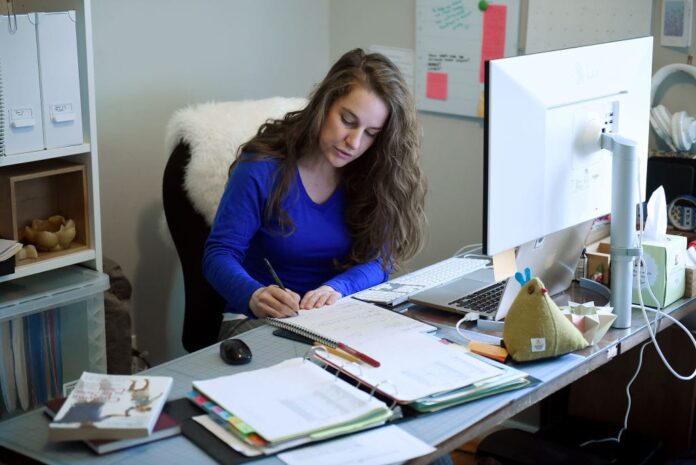Scientists are exploring whether a new ‘working from home’ culture, coupled with rising temperatures, is likely to impact the UK’s target of achieving net-zero carbon dioxide emissions by 2050.
Increased temperatures and more people working from home in the long-term is likely to drastically increase the demand to cool our homes, the team says, putting an added demand and strain on the UK’s electricity system.
Demand for cooling is expected to increase in commercial and civic buildings too, such as hospitals, schools, offices and shops, allowing us to stay comfortable, provide productive workplaces and to carry out day-to-day tasks.
It is estimated that up to 10 per cent of all UK electricity is used for cooling and air conditioning at the moment, a figure that is likely to get bigger with an expected temperature increase between 3 and 5°C for the average regional summer by 2080 and an increase in the number and frequency of hot spells.
The new £1.1m interdisciplinary project ‘Flexibility from Cooling and Storage (Flex-Cool-Store)’, funded by the EPSRC, will investigate the impacts of a growth in cooling demand and how it can be managed through the design of new cooling and energy storage systems that require little to no carbon.
“Cooling decarbonisation has not previously received significant attention, but this is changing due to population increase and climate change,” said Principal Investigator on the project Dr Carlos Ugalde-Loo from Cardiff University’s School of Engineering.
“Summertime cooling of buildings is becoming increasingly important, particularly as more and more of the population choose to work from home and the demand for greater comfort levels within our homes increases.
“Even though significant reductions in emissions have already been achieved in the electric power sector, progress has been limited in other areas, such as heating and cooling, which account for over a third of UK emissions.”
According to a recent report by the United Nations Environment Programme (UNEP) and the International Energy Agency (IEA), implementing energy-efficient cooling appliances could avoid nearly eight years of emissions, which is as much as 460 billion tonnes of greenhouse gases worldwide.
The report states that energy-efficient air conditioners could bring a saving of £2.3tn in reduced electricity generation by 2050, and stresses the need for around 14 billion cooling applications worldwide by 2050, with some 3.6 billion air conditioners being already in use.
Flex-Cool-Store will give recommendations on how cooling will contribute towards a sustainable, low-carbon and net-zero transition by 2050, and inform the energy sector, government and individual consumers on the cooling challenge that lies ahead.
It will aim to quantify the extent to which cooling will affect peak electricity demand and what this means for reinforcing the energy network. In particular, the researchers will consider how the country’s power systems can be balanced with a surge in photovoltaic energy generation also expected within the summer months.
With this in the mind, the researchers intend to study how cooling and electricity systems can be integrated with energy storage in buildings to maximise flexibility.
The project will also explore public perceptions towards the adoption of cooling technologies within households, buildings and communities via interviews and public workshops.
“Significant investments in the modernisation, digitisation and automation of cooling infrastructure and buildings are needed to ensure a safe, efficient, reliable and sustainable system.
“By assisting future energy policy decision making around cooling, providing strategic expert input to relevant stakeholders, and by supporting the delivery of net-zero targets by 2050, the project has a potential transformational impact,” continued Dr Ugalde-Loo.
Minister for Climate Change Lord Callanan said: “The way we use energy in our buildings makes up almost a third of all UK carbon emissions. Reducing that to virtually zero is going to be key to eradicating our contribution to climate change by 2050.
“That’s why it’s important that innovative projects like Flex-Cool-Store in Cardiff receive backing to develop new and effective ways to heat and cool our homes and workspaces, helping drive down the costs of low-carbon technologies so everyone can feel the benefits of cheaper and greener energy.”







